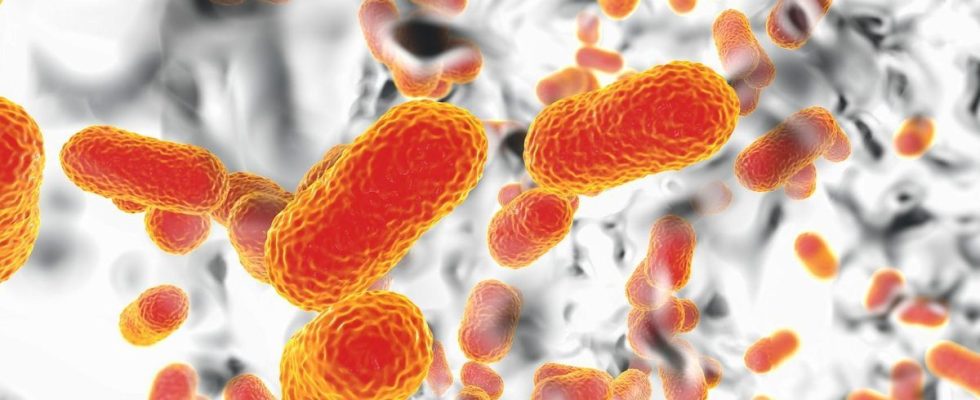Published on
Updated
Reading 2 min.
Researchers from the Roche laboratory and Harvard University have developed a new antibiotic, effective against Acinetobacter baumannii, an antibiotic-resistant bacteria responsible for very serious infections.
A resistant bacteria identified as a threat by the WHO
Antibiotic resistance is increasingly emerging as a global public health problem. In 2017, the World Health Organization drew up a list of bacteria against which new antibiotics are urgently needed. Among the highest priority was carbapenem-resistant Acinetobacter baumannii. This bacteria can cause serious lung, urinary tract and blood infections, which can sometimes be fatal. A study published in the scientific journal Nature reports the discovery of a new effective antibiotic by a team from Harvard University and the Roche laboratory.
A new mechanism of action
Acinetobacter baumannii is a Gram-negative bacteria. These bacteria have an outer membrane and are often associated with infections because they may be more resistant to antibiotics than Gram-positive bacteria. Unlike traditional broad-spectrum antibiotics, which can kill many types of bacteria, the potential new antibiotic is specific to Acinetobacter baumannii resistant to carbapenems. The mode of action is unique, it involves preventing the bacteria from correctly building its protective membrane.
As specified by the Roche laboratory in a press release, the new drug successfully inhibits the LptB2FGC complex, the machinery that assembles the outer membrane of Gram-negative bacteria. preventing the movement of large molecules called lipopolysaccharides to the outer membrane, where they are needed to maintain membrane integrity. This causes molecules to build up inside the bacterial cell. The levels inside the cell become so toxic that the cell itself dies.
Phase 1 trials already launched in humans
Called zosurabalpin, this new molecule was tested in vitro on more than 100 samples of the resistant bacteria, it also demonstrated its effectiveness on mice infected with the bacteria with a reduction in bacteria levels in rodents suffering from pneumonia and avoiding the death of mice suffering from sepsis triggered by the bacteria.
According to a CNN articleZosurabalpin is currently in phase 1 clinical trials to evaluate the safety, tolerability and pharmacology of the molecule in humans, according to the authors of the study.
This new molecule will make it possible to discover new biological knowledge on the construction of bacterial membranes. But in the immediate future, the objective is to develop a new drug that will effectively kill a bacteria whose resistance today constitutes one of the greatest challenges in terms of infectious diseases for public health.
